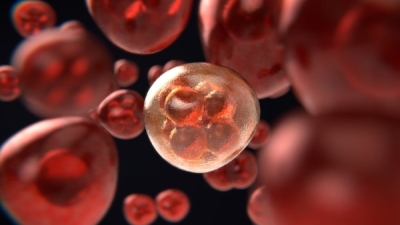Cancer is a multifactorial disease that most commonly affects people over 50 years of age. However, evidence shows that the incidence of many types of cancer, including those of the breast, colorectal, endometrium, esophagus, extrahepatic bile duct, gallbladder, head and neck, kidney, liver, bone marrow (multiple myeloma), pancreas, prostate, stomach and thyroid, has increased in adults under 50 years of age in many parts of the world.
Based on these facts, recently, the scientific journal Nature Reviews Clinical Oncology published a review article with the objective of reporting changes in the incidence of early-onset cancer (in this case, adults under 50 years old) around the world and suggesting measures that can reduce the risk of cancer and other chronic non-communicable diseases.
Initially, the study mentions that the incidence of cancer in adults under 50 years of age has been increasing in several parts of the world since the 1990s. The main evidence suggests that exposures to risk factors in early life and young adults may contribute to the origin of the disease, although these specific effects still need to be clarified.
However, this issue can be explained by the biological changes that occur throughout life due to environmental exposures, diet, lifestyle, obesity and microbiota, which have changed substantially throughout the world since the mid-20th century. This set of environmental exposures is called, in biology, an “expososome”. In this sense, the authors point out that trends have emerged in children, adolescents and adults regarding height, overweight and obesity, type-2 diabetes, physical inactivity, and a “Western-style” diet (defined as a diet high in saturated fats, red meat, processed foods, sugar and ultra-processed foods, but low in fruits, vegetables, whole grains and fiber) and intake of sugary drinks.
Per capita alcohol consumption also increased between 1960 and 2010, although there are variations in this consumption between countries, with a decrease in western Europe and an increase in some regions of Asia. In Brazil, there was a significant drop in per capita consumption of alcohol, which decreased by 14% since 2010. Abusive consumption, on the other hand, has remained stable in Brazil over the last decade for the general population, with an increase among young and educated women.
Smoking habits have also changed, with Brazil being one of the countries with the biggest decline in smoking in the world (2). On the other hand, sedentary lifestyle, obesity and consumption of ultra-processed foods have increased in the country in recent years.
In addition to personal smoking habits, there are the effects of involuntary exposure to smoke, especially during early life. Sleep patterns, as well as the extent of exposure to bright lights at night, have also changed in children, teens, and adults since the turn of the century.
The article emphasizes the need to raise awareness of the early-onset cancer epidemic and increase prevention efforts. As a suggestion, the text proposes to improve the population's knowledge of health and promote interventions that encourage a healthier lifestyle, especially diet, which can reduce the risk of cancer. In addition to personal prevention efforts, other interventions that promote adherence to a healthier lifestyle at a societal level, such as regulation of industries that produce tobacco, ultra-processed foods and beverages, can help fight and prevent cancer.











